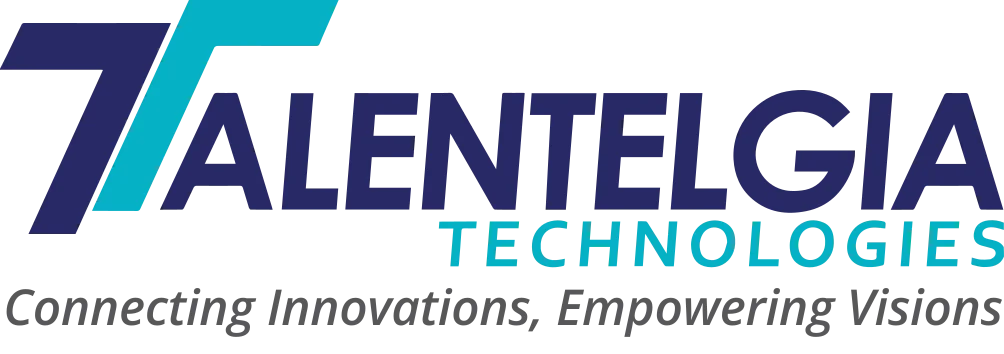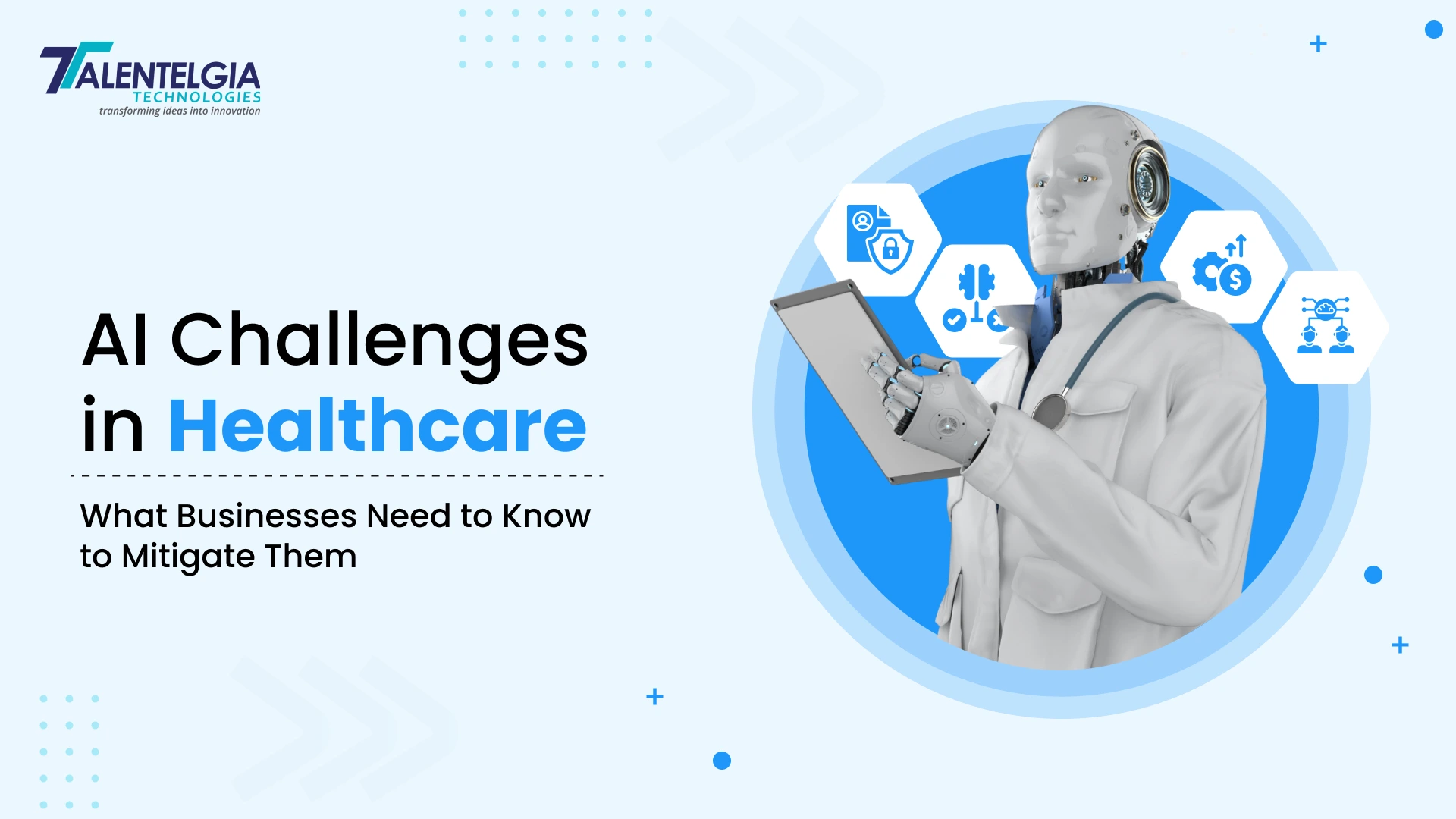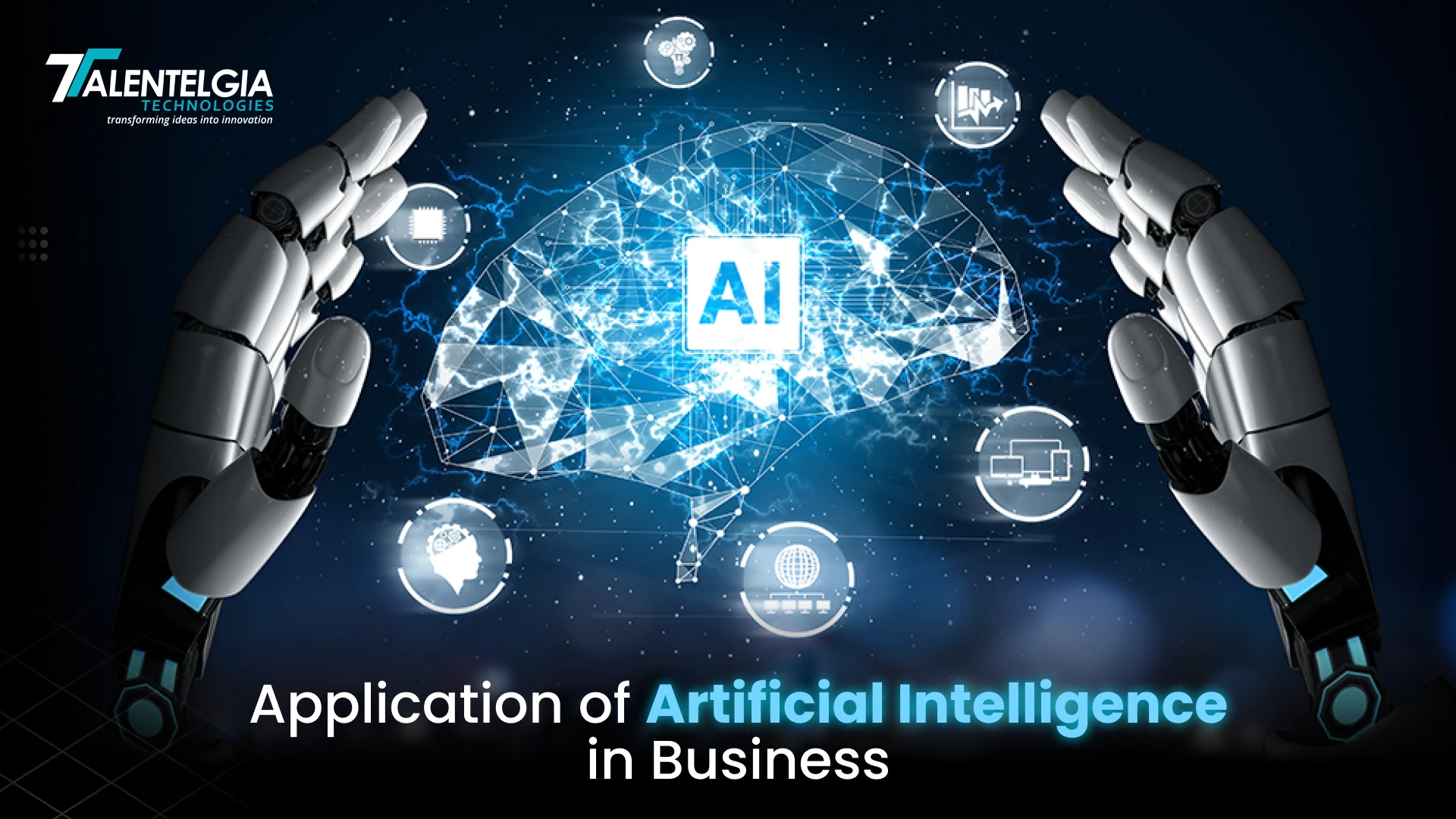Artificial intelligence has grown distinctly within the healthcare industry. The use of AI in medicine has raised questions about the challenges and opportunities of AI in healthcare.
ChatGPT modified the digital world, and now with the creation of generative AI, the opportunities are limitless.
AI development companies have influenced the biggest industries like IT, real estate, fintech, and e-commerce. But healthcare has also not remained untouched by its impact.
It is bringing huge changes and remodeling how doctors and patients experience medication. AI has become beneficial in healthcare, giving medical doctors more strength and enhancing patient experience.
However, it is important to effectively deal with the problems with AI in healthcare to get the best outcomes.
“AI can achieve better patient outcomes, enhance care delivery, and drive operational gains for the healthcare industry.”- McKinsey.
Why is AI in Healthcare Important?
If you are wondering about AI in healthcare – good or bad? You are at the right place. We will discuss the drawbacks of artificial intelligence and their potential solutions in the healthcare sector.
But let’s start with understanding what makes the integration of AI important in the healthcare industry. AI speeds up the processes in healthcare, helping scientists make discoveries faster. It’s like a smart helper for doctors, aiding them in making the best decisions for each patient. And, it also predicts risks during big health events, helping authorities take the right steps to keep everyone safe.
When you go for AI in healthcare, it is like working with a team of experts. It makes everything faster, smarter, and personalized for everyone’s well-being. Artificial Intelligence (AI) brings many benefits that make our health better! One of the big advantages is that it speeds up diagnosis—AI helps doctors and nurses quickly figure out what’s wrong with us.
It makes the process easier with CT scans and X-rays and finding diseases early on. This means the patients get the right treatment faster and have a better chance of recovery.
AI acts to figure out the best treatment based on their history and genes. It’s like having a personalized plan for each patient, making them feel better. It is also great when it comes to managing health records. It finds patterns in lots of data, helping doctors prevent diseases and keep people healthy. It even fights against fraud, making sure resources go to real patient care. AI-powered chatbots are like that, giving advice and making healthcare more accessible. They also help doctors by handling some tasks.
That is why the popularity of AI in healthcare startups and special challenges, make balancing its pros and cons important.
AI Challenges in Healthcare & How to Minimize the Risks?
With the market expected to reach $188 billion by 2030, it is important to use it effectively for your healthcare business.
AI has revolutionized the healthcare industry with better diagnosing, treatment, and even administration. Despite such opportunities, AI also poses some challenges in the healthcare industry. While it offers several benefits to businesses, they also find themselves struggling with AI risks in healthcare. Some of these include:
Data Privacy and Security Concerns
Health information is highly confidential. There is private and clinical information about the patients. Big data-based training and decision-making for AI systems raise serious issues of privacy and security. Such misuse can cause identity theft, insurance fraud, or exploitation of medical histories by accessing them illegally.
This makes it one of the legal issues of AI in healthcare. Healthcare organizations demand solid encryption protocols, access control, and data governance for patient information protection. Despite such protection, it still remains vulnerable because the evolution of cyber attacks develops sophisticated methods daily.
How to Ensure Data Security to Address AI Challenges in Healthcare?
- Implement advanced encryption techniques and secure data storage systems.
- Use anonymization and de-identification methods to protect sensitive data.
- Conduct regular security audits and vulnerability assessments.
- Develop robust incident response plans to address breaches quickly.
- Ensure compliance with global privacy regulations like HIPAA, and GDPR.
Algorithms Bias
AI models are only as good as the data they’re trained on. However, healthcare data frequently reflects societal inequities and, thus, biased algorithms.
For example, an AI tool for the identification of skin cancer may do better with light skin tones. This might be because there isn’t much diversity in training data. Such biases may result in improper diagnosis or treatment suggestions that adversely affect the concerned groups. Dataset diversity and cross-validation across diverse demographics for the AI tool may remove this bias. Additionally, there should be constant auditing of algorithms to detect any biases and correct them. This bias can sometimes lead to issues like discrimination and adds to the list of ethical concerns of AI in healthcare.
How to Overcome Algorithm Bias AI Challenge in Healthcare?
- Diversify datasets for training AI models, making them representative of all demographics.
- Regular auditing of AI algorithms for bias and subsequent retraining if necessary.
- Involvement of interdisciplinary teams that include ethicists and sociologists in the development of AI.
- Promotion of fairness through mechanisms of algorithmic transparency and accountability.
Lack of Transparency (Black Box Problem)
Most AI systems are unpredictable as their decision-making processes are not easily understandable to humans.
This leads to a lack of transparency. It also raises ethical and practical concerns. Since these decisions can impact lives, it is one of the most prominent negative impacts of artificial intelligence in healthcare.
For instance, a doctor may not explain why one AI tool decided that one treatment was better than another. This can negatively affect the trust of the patient. Developers have to focus on building explainable AI systems that offer clear reasoning behind their outputs.
How to Maintain Transparency to Address AI Challenges in Healthcare?
- Focus on developing Explainable AI (XAI) systems. They provide clear insights into their decision-making processes.
- Require AI tools to generate human-readable outputs that explain recommendations.
- Establish validation protocols to ensure outputs can be trusted and verified.
- Educate healthcare providers on interpreting AI outputs effectively.
Regulatory and Compliance Matters
Healthcare is a highly regulated industry. Therefore AI integration in healthcare requires multiple standards and legal frameworks for compliance. Moreover, many AI regulations are still in the development stages. So, companies struggle when it comes to finalizing the approvals.
Most AI technologies face rigorous testing and validation to ascertain their safety and efficacy. This is often time-consuming and quite expensive.
Country-specific regulations create another burden for international adoption. A worldwide standard needs to be in place. Its absence can make regulatory uncertainty one of the most overlooked AI risks in healthcare.
How to Ensure Compliance to Address AI Challenges in Healthcare?
- Work closely with regulatory bodies during AI development to ensure compliance from the start.
- Advocate for clearer AI-specific guidelines and global standards for healthcare applications.
- Maintain thorough documentation of AI model development and testing for audits.
- Focus on certifications and approvals, such as FDA clearances for AI tools.
Integration with existing systems.
Legacy systems that existed in most healthcare institutions were not set to be operational with AI systems. The inclusion of AI often involves extensive modernization, transferring of data, and retraining personnel. This needs a lot of time and investment. Compatibility problems tend to lead to disintegrated workflows that degrade rather than improve efficiency.
Hospitals and clinics require scalable, interoperable solutions for the seamless adoption of AI. However, such systems are not yet widespread, adding to the problems with AI in healthcare.
How to Handle Integration to Overcome AI Challenges in Healthcare?
- Develop AI solutions that are compatible with existing healthcare IT systems.
- Focus on modular designs that allow phased implementation without disrupting operations.
- Provide comprehensive training programs for staff to adapt to new AI tools.
- Partner with IT service providers to streamline integration and minimize downtime.
High Implementation Costs
AI development, deployment, and maintenance are expensive. Substantial investment is required in the procurement of good quality data, hiring skilled AI specialists, and other requirements. T
The overall cost burden can be one of the disadvantages of technology in healthcare for smaller healthcare facilities. Moreover, constantly updating AI systems ensures accuracy, security and increases overall expenses over time. This is aggravated when healthcare providers fail to justify investments without any concrete results. ROI remains a challenge, mainly in resource-scarce settings.
How to Balance Costs to Mitigate AI Challenges in Healthcare?
- Start with pilot programs to test AI’s effectiveness before full-scale deployment.
- Leverage cloud-based AI services to reduce infrastructure costs.
- Partner with AI startups or universities to access affordable innovations.
- Demonstrate ROI through detailed case studies and data-driven success stories to attract funding.
Ethical concerns of AI in healthcare
The application of AI in healthcare creates difficult ethical questions on accountability, consent, and autonomy. There is a lack of accountability. It is difficult to find out who is responsible if an AI-driven diagnosis is wrong—the doctor, the developer, or the AI itself.
Further patients may feel uneasy knowing that decisions over their health are being influenced by algorithms rather than humans. Ethical challenges also include the issue of informed consent. Sometimes, patients may not be fully aware of how AI is being applied in their treatment.
Setting standards and frameworks for ethics is crucial. However, the challenge lies in achieving a common understanding of these standards.
How to Address Ethical AI Challenges in Healthcare?
- Establish clear accountability frameworks for AI-related decisions.
- Develop ethical AI guidelines and oversight committees within healthcare institutions.
- Ensure patients are informed and consent to AI usage in their care.
- Encourage open dialogue between AI developers, medical professionals, and patients.
Limited Human-AI Collaboration
While AI would process data thousands of times quicker than a human, its presence should complement rather than replace a doctor. Also, healthcare providers fear losing control over their occupation or losing a job.
Thus, trust is essential for effective cooperation between AI systems and healthcare providers. It can only be achieved through education and training. The successful implementation of AI requires doctors and nurses to understand its capabilities and limitations. A collaborative attitude rather than a competitive one will ensure effective human-AI cooperation.
How to Address Human AI Collaboration AI Challenge in Healthcare?
- Focus on AI tools designed to assist rather than replace human decision-making.
- Offer training programs to help healthcare workers adapt to AI technologies.
- Promote success stories where AI has enhanced outcomes without job losses.
- Encourage collaborative development where healthcare providers contribute to AI design.
Examples of AI Failure in Healthcare
Artificial Intelligence (AI) has a lot of potential in healthcare. However, several real-world instances have highlighted problems with AI in healthcare. These make it challenging to answer – AI in healthcare is good or bad.
1. IBM Watson for Oncology – Misguided Recommendations
IBM’s Watson for Oncology was created to provide cancer treatment recommendations by analyzing huge medical data. However, it received criticism due to inappropriate and unsafe treatments recommended, adding to AI risks in healthcare. The system was trained primarily on hypothetical cases and data from a single institution, limiting its applicability across diverse patient populations. As a result, Watson frequently recommended treatments that were not feasible in real-world clinical settings.
2. Google’s Retinal Screening Algorithm – Flawed Field Testing
Google developed an AI tool for diabetic retinopathy detection in retinal images. It shows great promise when tested in a controlled environment but fails in a field test conducted in Thailand due to the inability to obtain clear images in local clinics. Internet connectivity issues also impacted the tool by delaying the assessment and frustrating the patients.
3. Epic Systems Sepsis Prediction Model – Poor Accuracy
Epic Systems had developed an AI algorithm to predict the risk of sepsis for a patient hospitalized. Research showed that the tool is not very accurate. It missed many sepsis cases and yielded high false positives. The algorithm’s weakness can be traced to incomplete and biased data. It failed to incorporate differences in various clinical settings.
5. Skin Cancer Detection Algorithm – Racial Bias
An AI dermatology tool, designed to identify skin cancer, had a dismal result on darker-complexioned patients. It had been trained largely on lighter-skin images and was, therefore, less than accurate in diagnoses for patients of darker hues. This presented an important challenge that AI models had to address – bias in the training data.
6. Diagnostic Tool of PathAI- Accuracy Variability
PathAI developed an AI model to help with disease diagnosis such as breast cancer. Early testing was encouraging but subsequent testing resulted in mixed outcomes between laboratories. Consistency in equipment and image quality, as well as the AI model’s inability to handle borderline cases, made its reliability questionable to pathologists.
8. Facial Recognition for Patient Identification – Privacy Violations
Some hospitals introduced AI-based facial recognition systems for identifying patients, but ethical and privacy concerns were raised. Patients expressed discomfort with the invasiveness of facial recognition, and issues regarding data security and potential misidentification led to administrative errors and increased apprehension over the use of technology in healthcare settings.
These examples highlight some of the complex issues and risks of integrating AI into healthcare systems.
Benefits of Balancing the Challenges & Opportunities of AI in Healthcare
AI is not only changing what happens in diagnosing but also treatment plans, making this process efficient as well as reliable. This can promise a good future of ‘personalized medicines’ and bettering the patient outcome. This needs careful planning and strategizing to be done, but then comes the point. Once you can make the AI risks in healthcare manageable, you can enjoy benefits like:
Medical Imaging: AI will recognize images that are like a CT scan, MRIs, or X-rays. With this, the doctors get to see some extra information on their patients. Second, super tech hastens the rate at which and improves in accuracy of how wrong patients’ health conditions are. As such, they gain a fast recovery period.
Early Detection: AI makes diagnostics easier through CT scans, MRIs, and X-rays. It makes the doctors understand what’s going on inside our bodies. The superpower of AI is to analyze images super accurately and fast. So doctors can find out what is wrong with us fast and get us well faster.
Electronic Health Records (EHRs): Electronic Health Records (EHRs) are crucial, and AI helps manage them seamlessly. By analyzing tons of medical data, AI identifies patterns to prevent diseases and improve treatments. It’s like having a librarian organizing data to predict diabetes or heart disease risks.
Risk Prediction: AI models become the perfect tool for predicting big events, such as pandemics. AI can simulate how diseases might spread using vast datasets and advanced algorithms. The simulation helps policymakers and healthcare groups prepare and respond to keep people safe.
Automation: Sometimes, hospitals have lots of paperwork. Imagine if there were experts who could make computers do some of the work! Intelligent automation and RPA are like them. They help hospitals do routine tasks without much hassle.
Conclusion
The change brought into the healthcare world by AI is nothing short of a revolution. It can add precision to the diagnosis and make treatment more personalized. This would help in the better delivery of patient care. From easy, fast, and accurate administrative procedures to healthcare services for inaccessible places, AI is transforming how we deliver health.
The potential of AI in healthcare for better patient outcomes is unprecedented. That is why the issues of data privacy, algorithmic bias, and more importantly, the ethical concerns in AI must be taken with extreme care.
At the same time, the future of healthcare goes hand in hand with the responsible, ethical development of AI technologies. Let's welcome this transformation and work together toward unlocking the complete potential of AI for a better future for everyone.





















 Business:
+971 565-096-650
Business:
+971 565-096-650
 Write us on:
Write us on:  Business queries:
Business queries:  HR:
HR: 




